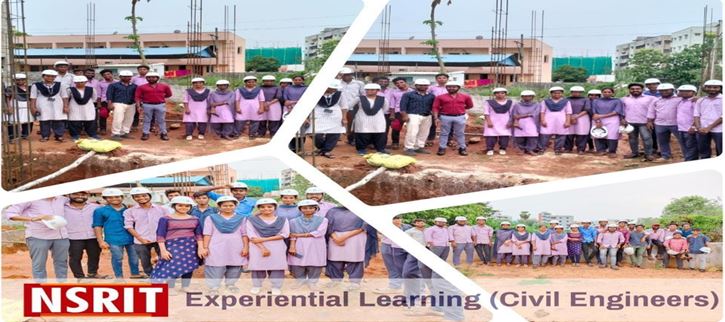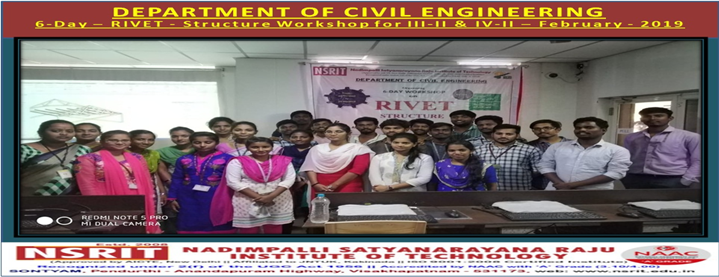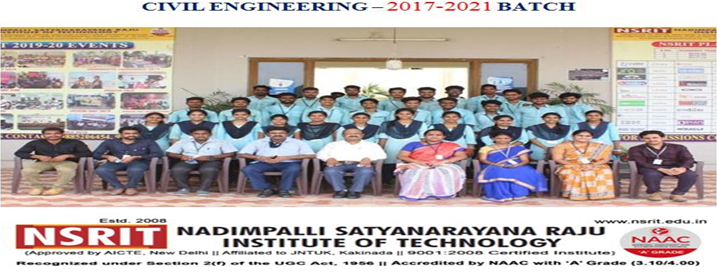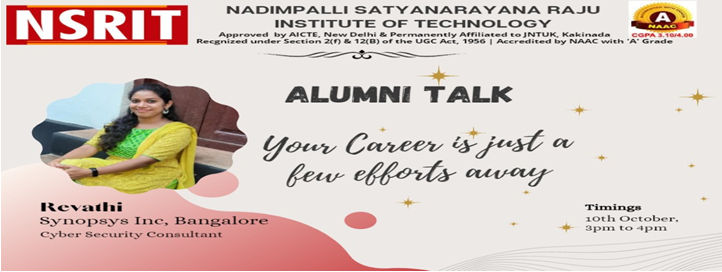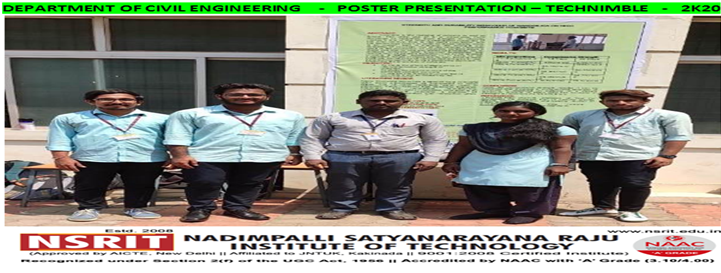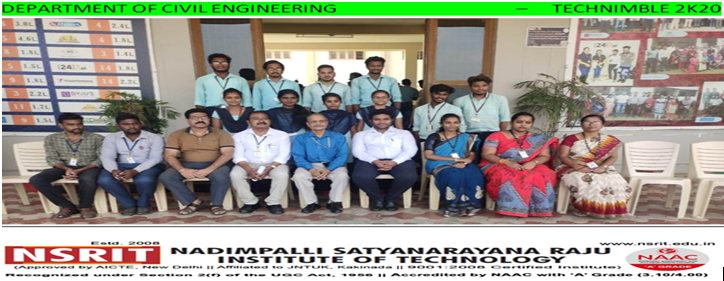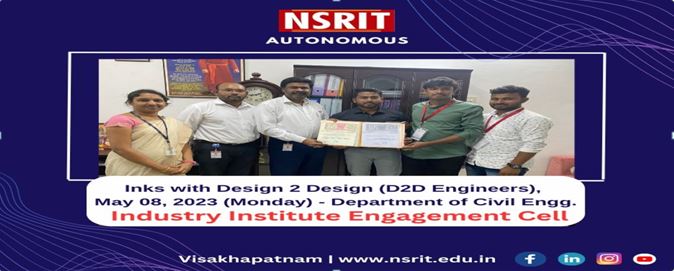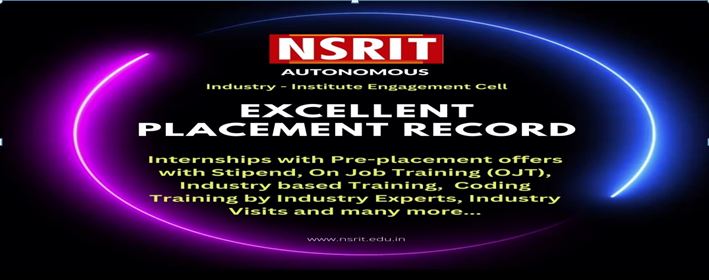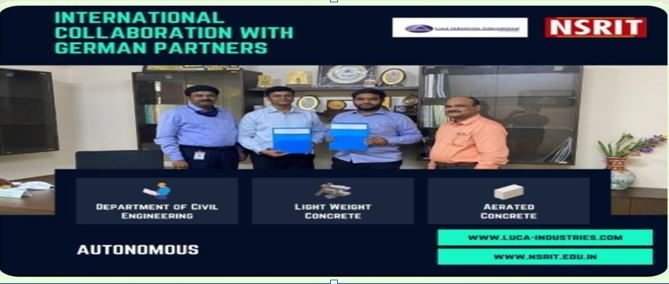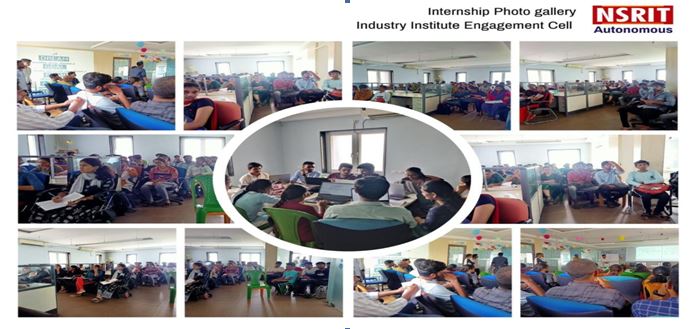ABOUT CIVIL ENGINERING DEPARTMENT:
The department of civil engineering was established in the year 2014 with fully equipped class rooms, laboratories and library. The Department, with the state-of-the-art, research facilities and very much qualified, devoted and experienced personnel and staff, has been attempting huge endeavors in accomplishing magnificent scholastic outcomes in the University examinations and recruitment of the students in prominent organizations.
The department strongly believes in introducing multidisciplinary information in the civil engineering syllabus to inculcate the knowledge of students to meet the future requirements. The department was established to ingratiated the industry and academic relations.
The Department is presently expecting to gearing up for becoming Autonomous Institution according to the UGC rules and regulations.
VISION
To be a premier technical department with teaching, research and consultancy that serves the society and strives continuously for excellence in education and research.
MISSION
To provide quality education for successful career and higher studies in Civil Engineering that emphasizes academic and technical excellence in profession and research, effective communication, team work and leadership to meet the challenges of the society.
PROGRAM OUTCOMES (POs)
- Apply the knowledge of basic sciences and fundamental engineering concepts in solving engineering problems (Engineering Knowledge)
- Identify, formulate, review research literature, and analyze complex engineering problems reaching substantiated conclusions using first principles of mathematics, natural sciences, and engineering sciences (Problem Analysis)
- Design solutions for complex engineering problems and design system components or processes that meet the specified needs with appropriate consideration for the public health and safety, and the cultural, societal, and environmental considerations (Design/Development of Solutions)
- Perform investigations, design and conduct experiments, analyse and interpret the results to provide valid conclusions (Investigation of Complex Problems)
- Select/develop and apply appropriate techniques and IT tools for the design & analysis of the systems (Modern Tool Usage)
- Give reasoning and assess societal, health, legal and cultural issues with competency in professional engineering practices (The Engineer and Society)
- Demonstrate professional skills and contextual reasoning to assess environmental/societal issues for sustainable development (The Environment and Sustainability)
- Demonstrate Knowledge of professional and ethical practices (Ethics)
- Function effectively as an individual, and as a member or leader in diverse teams, and in multi-disciplinary situations (Individual and Team Work)
- Communicate effectively among engineering community, being able to comprehend and write effectively reports, presentation and give / receive clears instructions (Communication)
- Demonstrate and apply engineering & management principles in their own / team projects in multidisciplinary environment (Project Finance and Management)
- Recognize the need for, and have the ability to engage in independent and lifelong learning (Life Long Learning)
PROGRAM EDUCATIONAL OBJECTIVES (PEOs)
- Demonstrate the real-world Engineering problem solving skills by applying the fundamental and conceptual engineering knowledge as a practicing civil engineer or as a member/lead in a multidisciplinary project setting that utilize 21st century skills
- Provide research-based engineering solutions addressing the tribble bottom line of environment and sustainability maintaining the professional standards, ethics, and integrity
- Foster self-directed learning through their professional experience and research, technology advancements in their relevant field of interest and desiring graduates pursue advanced higher education
PROGRAM SPECIFIC OUTCOMES (PSOs)
- Demonstrate adequate core competency in planning, analyzing, and designing structural elements/structures, basic transportation and environmental systems, hydraulic structures, and similar others, as well as providing sustainable computer aided solutions that meet Indian codes of practice (BIS) adopting ethical practices
- Demonstrate adequate knowledge in the allied specialization of Civil Engineering that adds value addition for professional practices
